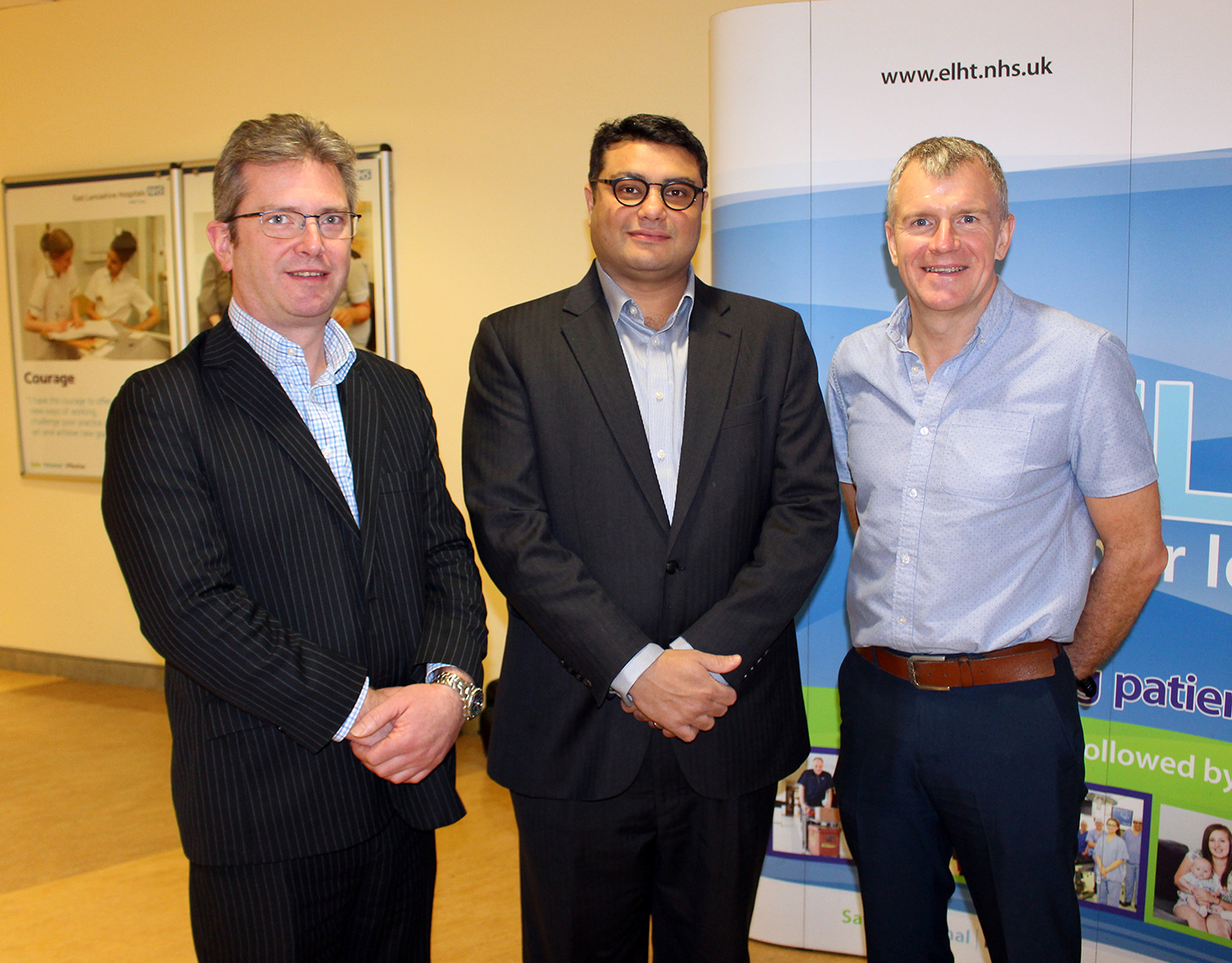
Pictured: Mr Iain Campbell, Mr Adnan Sheikh and Mr Colin Harris
A trio of talented surgeons at East Lancashire Hospitals NHS Trust have performed what is believed to be the first combined renal and bowel cancer surgery in the North West using robotic assisted surgery.
Consultant Colorectal Surgeons Mr Adnan Sheikh and Mr Colin Harris along with Consultant Urological Surgeon Mr Iain Campbell completed the complex seven-and-a-half hour operation at the Royal Blackburn Teaching Hospital, assisted by Da Vinci™ robotic technology.
“Minimal invasive surgery using the Da Vinci™ robot has a number of benefits, most importantly for the patient,” said Mr Iain Campbell. “They lose less blood, experience less pain, recover quicker and consequently leave hospital sooner.
“In the longer term, robotic assisted surgery means the patient can return to normal everyday activities much faster.”
“This was a great team effort and the kidney resection showed no residual tumour, which is great news for the patient.”
The pioneering combined procedure – a partial nephrectomy and anterior resection to remove tumours and parts of the patient’s kidney and bowel – is significantly more accurate than conventional surgery.
“The traditional approach would be to do what we call an ‘open’ operation,” said Mr Colin Harris. “It involves two large incisions to access and remove the tumour and would have taken a substantial amount of time, and is hugely invasive, leading to longer recovery and substantial scarring for the patient.”
The patient, who needed only paracetamol pain relief during post-operative recovery, was discharged home just six days later. Standard recovery time from a non-robotic operation of this complexity could typically be two weeks or more.
East Lancashire Hospitals has the largest and most comprehensive programme of robotic surgery in Lancashire, with the region’s leading surgeons performing robotic assisted surgery to remove head and neck, urological and colorectal cancers.
“Robotic technology gives the surgeon a better magnified view and increased dexterity – the outcome for the patient is much better using the robot,” said Mr Adnan Sheikh. “Even using keyhole (laparoscopic) techniques, the human hand is never as steady and safe as the robotic ‘arms’.”
“Mr Harris, Mr Campbell and myself wish to acknowledge the fantastic effort by all the staff involved. Good planning, a very good anaesthetist and excellent support from the theatre and critical care teams were vital in ensuring the best outcome for our patient.”
Innovations in robotic techniques at East Lancashire Hospitals has made surgery on more than one cancer (known as multi organ resection) the way forward for the Trust’s advanced robotic surgery programme.
Mr Shahid Islam, Divisional Medical Director for Surgery at East Lancashire Hospitals NHS Trust, said: “I want to congratulate all my colleagues involved in this pioneering procedure.
“We’ve been offering robotic assisted colorectal surgery at Royal Blackburn Teaching Hospital for over 12 months now and this latest procedure is a real feather in the cap for the Trust and our decision to invest in the Da Vinci™ robot.
“In the last three years, East Lancashire Hospitals has greatly expanded the use of robotic assisted surgery to benefit more people with cancer, both local patients and from across the Lancashire and South Cumbria area.”


